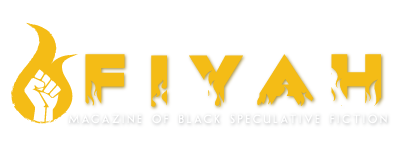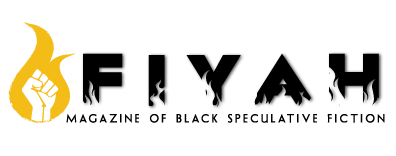The pen exploded through her crisp white shirt. The ink bled through and spread like the microcosm of a galaxy onto the polyester, and the girl remembered her small thumbs staining as she held a copy of the newspaper. Her grandmother demanded she read it when the girl visited her in Gaza in the summer of 1999.
اقرأي, she said. Read.
She tilted her ear toward the girl to hear better, and questioned her on the meaning behind every letter. As she stuttered through the Arabic calligraphy, the girl remembered the story about Prophet Muhammadﷺ when an angel visited him in the night and demanded he read the word of God. She wondered about how nervous he might have been then. If he felt the same way she did now. Her sweat released the ink from the page and imprinted onto her skin for the rest of the trip. She wanted nothing more than to disappear in that moment, but all she did was leave prints of her DNA all over her grandmother’s walls.
Her grandmother saw shapes made of ink as a child too, printed on paper brought by outsiders, and decided she would come to understand them. She was born a dark-skinned Bedouin girl with nothing but the sand at her feet and the wisdom of her ancestor’s stories at her tongue. She wondered if the tales on paper were like the ones she heard from her mother. Like the story about her late husband, a wandering man, who travelled from Ethiopia to Sudan to Egypt finding work on the brand new railway extending from Cairo to Damascus. He would work six days a week and sometimes get rest in Yafa, a bustling port city in Palestine. He would get off to eat and pray with the locals, sit by the market and eat fresh figs, watch the Bedouins arrive on Fridays, hundreds of them at a time. This is how he first met her, when she travelled to the market with her brothers on camel. And he knew right then he was going to spend the rest of his life with her. In Yafa, he found a place to build a family, take a moment, and gaze at the stars. They reminded him of Prophet Muhammadﷺ and his divine voyage to Jerusalem, when he saw the universe from heaven above. He would often tell his children about this tale. They would ask if by soaring up so high he was able to touch the stars, and he wondered if in travelling so much the Prophet ever felt like he’d found a home.
Her husband passed and left behind his wife and three children. The eldest begged to learn the meaning behind the shapes that were printed on paper, but she was not a boy so the tribe refused her. Her mother refused their refusal. Some say she went mad with grief. But now that her husband was gone, what reason was there for her not to leave? She escaped on a donkey under the cover of night, her three little children right behind. They somehow made it to the city and her mother knocked on a door. A known Bedouin family answered; she had sewn thobes for them before. She did not ask for charity but rather honest work and lodging. They accepted and for a moment they were out of harm’s way. Her daughter had even begun to learn the shapes made of ink day by day. But a year later, the tribe found her, and it wasn’t long before they were taken back to the desert. The girl was told never to read again. And the mother almost died by challenging all of them. She held her sword up high and pleaded with the sheikh, told him she would end this by the blade if it meant her daughter could understand the ink. In the end, he could not deny her tenacity. Or was it the madness of a mother’s love he saw lurking behind her eyes? He let her go and forbade anyone from following them. She travelled back to the city, this time truly free, her eldest daughter looking up at the same stars her late father did. The same stars that shone on him were the ones that shone on her, and they were the same stars the Prophet once saw from heaven above. For a moment she felt as if they were all kindred spirits. He was illiterate and became a prophet. Surely, in spite of it all, she could manage.
The girl learned not only to read but to think with reason. She grew up and decided she was going to study medicine. She became the first Black head nurse in all of Palestine. Knowledge coursed through her veins, and she eventually had children. She told them her stories the same way her mother did with her, and made sure they understood the meaning behind every word. Her daughters grew obsessed with language and became teachers. They vowed to repeat the stories they had heard through her. Even through exile, they opened a centre for learning, in a city next to the one their grandfather would always pray in. Once their children were old enough to understand, they told them about the stories woven by their grandmother’s hands. Some of them could only visit on rare occasion. One time, their little niece left prints of ink while on vacation.
And as the pen released all of its contents through her crisp white shirt, spreading like the microcosm of a galaxy onto the polyester, the girl burst out laughing as she remembered how nervous she was, the day her grandmother demanded she read the newspaper. She thought she had angered her by what she had done, but her grandmother made sure never to scrub the thumbprints off those walls.




Natalia Mirochnitchenko
Love you so much Samah Fadil!????
Samah Fadil
Thank you!